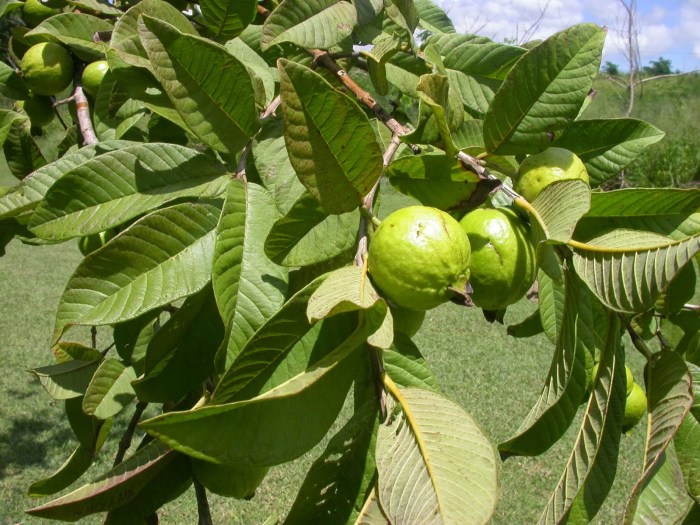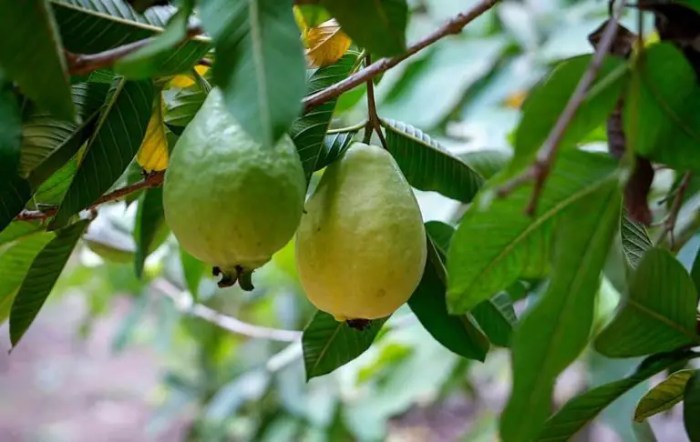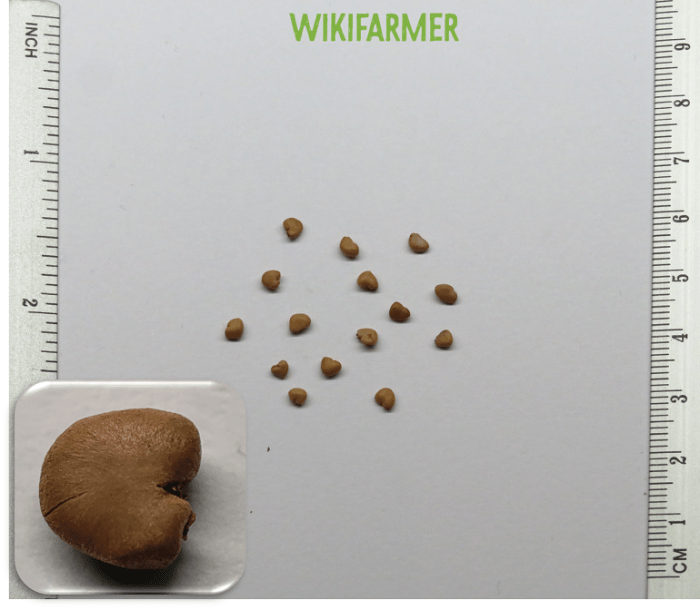Can You Plant Guava Seeds?
Growing Guava from Seed: Can You Plant Guava Seeds
Can you plant guava seeds – Cultivating guava trees from seed offers a rewarding experience, allowing you to nurture a plant from its earliest stages. While it might take longer than propagating through cuttings, the process is relatively straightforward with careful attention to detail. This guide provides a comprehensive overview of guava seed germination, planting, care, and growth, enabling you to successfully grow your own guava tree.
Guava Seed Germination Process
Guava seed germination involves several key stages, each requiring specific environmental conditions for optimal success. Understanding these stages and providing the right environment significantly improves your chances of successful germination.
- Imbibition: The seed absorbs water, initiating metabolic activity.
- Radicle Emergence: The embryonic root emerges, anchoring the seedling.
- Plumule Emergence: The shoot emerges, developing into the stem and leaves.
- Seedling Growth: The seedling develops its root system and leaves, becoming a self-sustaining plant.
Ideal conditions for guava seed sprouting include temperatures between 25-30°C (77-86°F), high humidity (around 70-80%), and indirect sunlight. Direct sunlight at this early stage can be detrimental.
Preparing guava seeds for planting involves carefully extracting them from ripe guava fruit, cleaning them thoroughly, and allowing them to dry slightly before sowing. Avoid letting them dry completely, as this can reduce germination rates.
| Method | Advantages | Disadvantages | Success Rate |
|---|---|---|---|
| Direct Sowing | Simpler, less handling | Lower germination rate, susceptible to environmental factors | Moderate (50-70%) |
| Starting Indoors | Higher germination rate, better control over environment | More time-consuming, requires transplanting | High (70-90%) |
Guava Planting Methods, Can you plant guava seeds

Source: etsystatic.com
Two primary methods exist for planting guava seeds: direct sowing and transplanting. Each method offers distinct advantages and disadvantages depending on your resources and environment.
- Direct Sowing: Seeds are sown directly into the final growing location. This is simpler but offers less control over the germination environment.
- Transplanting: Seeds are germinated indoors and then transplanted outdoors. This provides better control but requires more effort.
A planting schedule should consider the local climate. In warmer climates, guava seeds can be sown year-round. In cooler climates, spring or early summer is ideal. Avoid planting during periods of frost.
Suitable soil types for guava seedlings should be well-draining, fertile, and slightly acidic (pH 6.0-6.8). Here’s a comparison:
- Sandy loam: Excellent drainage, requires more frequent watering and fertilization.
- Clay loam: Retains moisture well, but needs good aeration to prevent root rot.
- Silty loam: Good balance of drainage and moisture retention.
Guava Seedling Care
Providing proper care for guava seedlings is crucial for their healthy growth and development. This involves consistent monitoring and timely intervention.
Healthy guava seedlings exhibit vibrant green leaves, strong stems, and a robust root system. Unhealthy seedlings might show signs of wilting, yellowing leaves, or stunted growth. Regular inspection is key to early detection of problems.
Common pests and diseases can be managed through preventative measures, such as proper spacing to improve air circulation, and timely treatment with appropriate organic or chemical controls if necessary. This may involve using insecticidal soaps or fungicides. Always follow product instructions carefully.
Transplanting guava seedlings to larger pots or the ground should be done carefully to avoid damaging the roots. The ideal time is when the seedlings have developed several sets of true leaves.
Environmental Factors Affecting Guava Growth

Source: bedgardening.com
Sunlight, temperature, and humidity significantly influence guava seedling growth. Maintaining optimal conditions is essential for healthy development.
Guava seedlings thrive in full sunlight (6-8 hours daily), temperatures between 20-30°C (68-86°F), and moderate humidity (60-70%). Extreme temperatures or prolonged periods of drought can stress the plants.
Consistent watering is crucial, avoiding both overwatering and underwatering. Drip irrigation or soaker hoses are efficient methods that prevent water stress while minimizing fungal diseases.
Imagine a bright, sunny location with well-drained soil, sheltered from strong winds, and consistent moisture. The air is warm and humid, providing ideal conditions for the guava seedlings to thrive. This is the optimal growing environment for guava seedlings.
Guava Growth and Maturation

Source: wikifarmer.com
The growth of a guava plant from seed to fruiting spans several years, with distinct stages of development. Understanding these stages helps in managing expectations and providing appropriate care.
A guava plant typically takes 2-3 years to bear fruit, although this can vary depending on the variety, growing conditions, and overall plant health. Factors such as climate, soil fertility, and pest management significantly influence the fruiting time.
| Condition | Average Height (Year 1) | Average Height (Year 2) | First Fruiting (Years) |
|---|---|---|---|
| Optimal Conditions | 30-50 cm | 1-1.5 m | 2-2.5 |
| Suboptimal Conditions | 15-30 cm | 50-100 cm | 3-4 |
Query Resolution
How long does it take for a guava seed to germinate?
Germination time varies but typically takes 2-4 weeks under ideal conditions.
Can I use store-bought guavas for seeds?
Yes, but ensure the fruit is ripe and the seeds are viable.
Yes, you can definitely plant guava seeds, though germination can be tricky. The success rate often depends on factors like seed freshness and soil conditions. This brings to mind a related question: for optimal growth, you might consider whether or not fertilizer should be used, much like when asking can you plant grass seed with fertilizer.
Understanding fertilizer use for grass seeds can provide insight into best practices for guava seed planting as well, ultimately contributing to a healthy plant.
What should I do if my guava seedlings are wilting?
Check for overwatering or underwatering, and inspect for pests or diseases.
How often should I fertilize my guava seedlings?
Fertilize regularly, following the instructions on a balanced fertilizer product, adjusting based on the seedling’s growth stage.





















